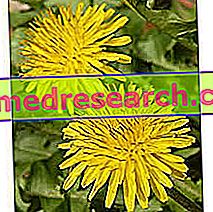BOLDO, Peumus boldus, Monimiacee family; hepatic drug associated with milk thistle in the formulation of hepato-protective products. Boldo is a plant, a shrub or a small tree, native to South America and cultivated in Chile; the dried leaves are used, which in the fresh state are characterized by the oval shape, while once dried they fold the lamina characteristically towards the lower page, curling slightly.
The active principles that characterize boldo are various alkaloids, about thirty from a phytochemical point of view; each of these is different from the other, but all have an analogous molecular architecture.
The alkaloid characterizing the functional expression of boldo is known as boldina ; paradoxically it is not the one present in the greatest quantity in the drug, although it determines in first person the use of the drug in phytotherapies related to the regularization of liver function.
The alkaloids, such as boldin and atropine, are very different molecules in terms of molecular architecture; consequently, they lack a common matrix that can lead us to summarize them in a very specific molecular typology, so much so that they have a very complex classification on a chemical basis; the important thing is that one or more nitrogen is present in the molecule, possibly in a heterocyclic ring.



